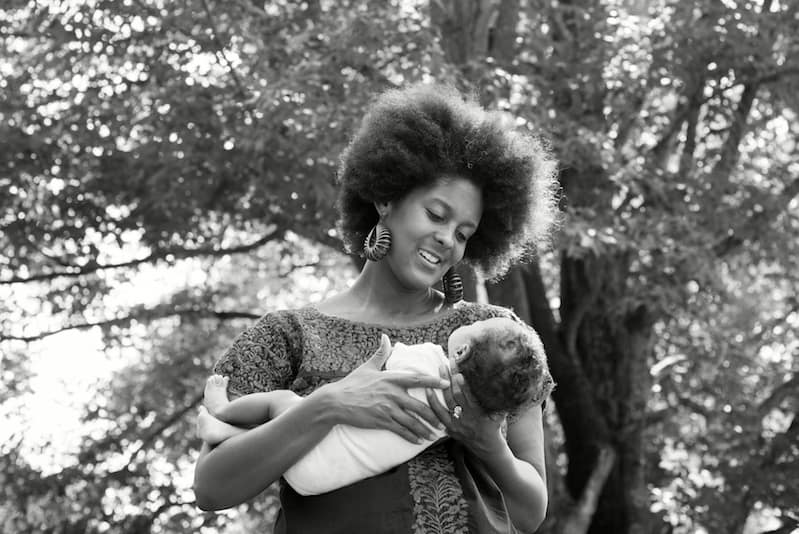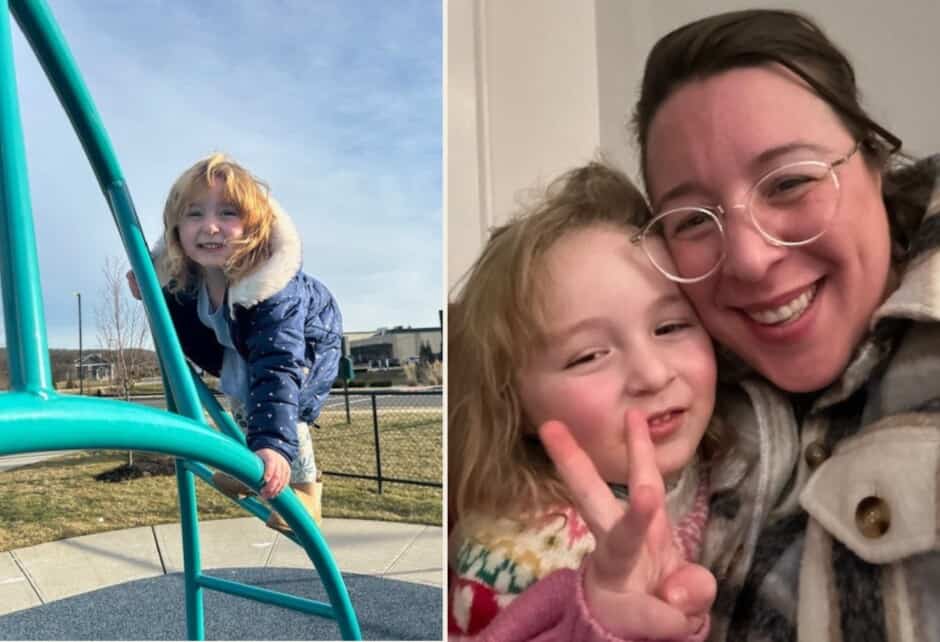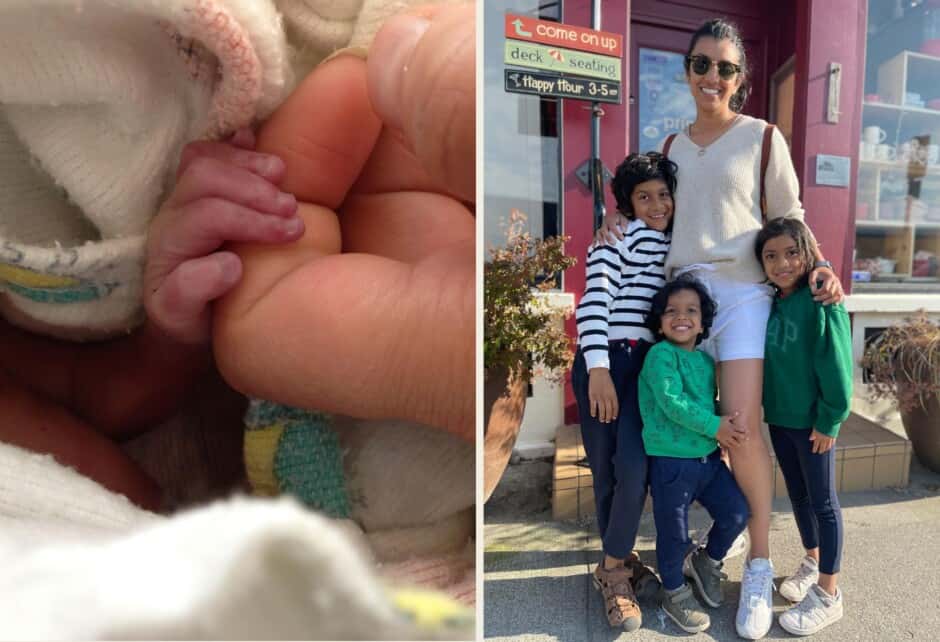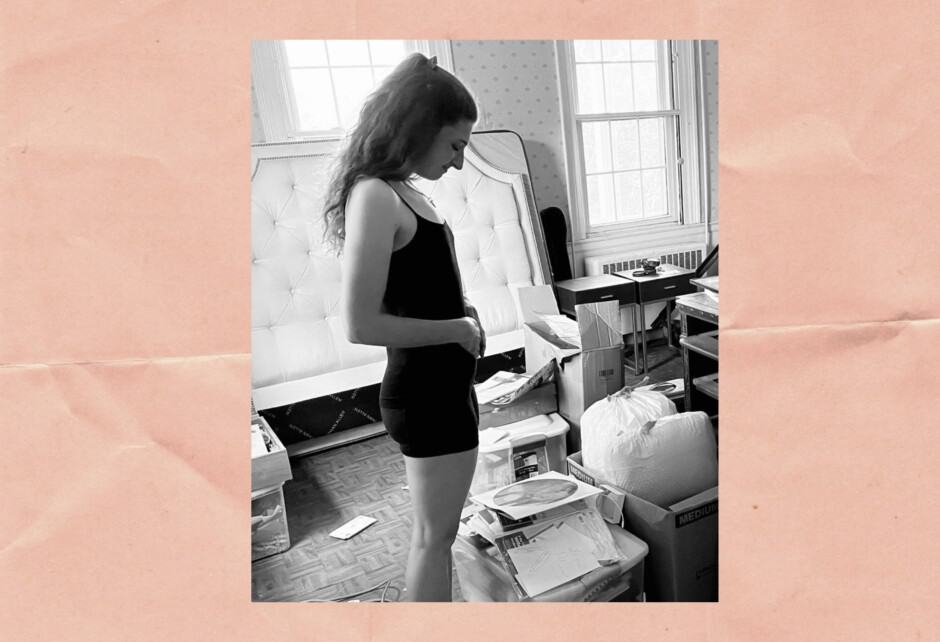
Mom Talk: The Political Power of Black Motherhood
Written by
Photography by
Photo courtesy of Dani McClain
Every mother is familiar with the juggle, but not everyone’s juggle looks the same. In today’s Mom Talk, Dani McClain, a long-time reporter, shares an except from her new book, We Live For The We: The Political Power Of Black Motherhood, all about the the inextricable link between black motherhood and political action. Her insights and investigations into the reality of the lives of mothers who are raising children while simultaneously fighting for an equitable existence for them is both enlightening and inspiring. As the rights of women and minorities continue to erode under our current administration, the words and actions of McClain and the incredible mothers she writes about are more important than ever, and should inspire all of us to find a way to join the fight. Read on, and then get to work.
When she is three months old, my daughter takes her first flight. She and my mom come with me to a health-care conference in Orlando, where I’m gathering information for a story on maternal health. When she is five months old, she and my mom hit the streets with me on a chilly January day to cover Cincinnati’s Women’s March. I snap photos of protest signs and talk to some of the thousands of people who have turned out to protest Trump’s inauguration. The next month, my mom and daughter accompany me to Santa Fe, where I give a talk at an event hosted by a local women’s foundation. I have taken the first three months of her life off work, but as soon as I’m back at it, my daughter is by my side and my own mother is with us, supporting us so that I can breastfeed and keep my girl close. At this stage in her life, my daughter, Is, is unaware of what I’m doing, content to spend time with her grandmother while I’m working. But soon enough, she’ll ask questions, and I’ll share with her what I’m up to. This is one way I’ll pass on an understanding of politics, power, and organizing to my daughter. I will share with her the stories that I collect and tell her why they’re significant.
The summer before Is turns two, the three of us are on the road again, this time to the San Francisco Bay Area, where I plan to do research for a project that will eventually become my first book, We Live For The We: The Political Power Of Black Motherhood. I hope to learn what politically oriented mothering looks like for others and how they pass their values on to their children. I’m lucky to catch Cat Brooks during the trip. In addition to running for mayor of Oakland, the organizer is on the move.
She’s just back from a people’s filibuster in Washington, DC, demanding that the government reunify the families it separated at the U.S.-Mexico border. Before that, she was in San Diego in support of an action calling for the abolition of ICE. Immigration is on the front burner in the summer of 2018, given the media spotlight on the Trump administration’s policies, but Brooks has been challenging state violence for years. The killing of Oscar Grant by a transit police officer in January 2009 thrust her to the center of Oakland politics and solidified her place as one of the nation’s most visible black liberation movement leaders. In 2014 she cofounded the Anti-Police Terror Project, an organization that supports the families of people killed or violated by police.
On this July afternoon, we’re in her office in downtown Oakland, where the walls are covered with posters demanding justice for Aiyana Stanley-Jones, Alan Blueford, and others slain by police. On a desk is a framed photo of Brooks and her now 12-year-old daughter, Jadyn, beaming at the camera. The picture was taken Mother’s Day 2017 when the girl saved enough money to rent a limo and take Brooks out for dinner at the Cheesecake Factory. Brooks doesn’t take moments like these—outings that are just about family, fun, and celebration—for granted. She and Jadyn often have to sacrifice downtime in favor of addressing some pressing community need. “You see these families, and every weekend they’re going hiking, or they have dinner together every night, and then they watch TV. That’s not our reality,” she says of her family. “We have to be in meetings and in the streets. So, it’s a balancing act unlike what I think other folks have to engage in.”
Brooks is talking about her own life, but she’s also talking about the particular demands of black motherhood as she sees them. Black mothering is a political project, and our mission—should we choose to accept it—is nothing short of revolutionary. “Our job as black mothers is to keep pushing the liberation ball down the court. Our obligation is to leave the world better for them and to ensure that they are equipped with the tools that they need to fight. We don’t have the luxury of living normal lives,” Brooks says. “I tell my daughter all the time—and it’s harsh—but we don’t live for the I. We live for the we.”
Twenty-five years ago, scholar Patricia Hill Collins coined the term “motherwork” to describe the political project Brooks alludes to. At the time, most white, middle-class feminist theorizing about motherhood focused on oppression within the home. Mothers were assumed to be unemployed and confined to the domestic sphere, thus dependent on a male patriarch whose earning power kept the family afloat. In her essay “Shifting the Center: Race, Class, and Feminist Theorizing About Motherhoo,” Collins upended this portrayal. Instead, she wrote, mothers of color often worked outside the home, and the domestic labor they performed was seen as part of the family’s overall uplift effort rather than something exploitative. For mothers of color, she wrote, “‘Reproductive labor’ or ‘motherwork’ goes beyond ensuring the survival of members of one’s family. This type of motherwork recognizes that individual survival, empowerment, and identity require group survival, empowerment, and identity.”
Black mothers advocate for our children everywhere, from the playground to the schoolhouse to the doctor’s office. There is always a campaign to wage. There is always a need to make our children’s humanity more visible and to convince, cajole, or pressure someone who’s making our lives more difficult because of their own blind spots or racist impulses. Activism is woven into the fabric of our daily lives, and it doesn’t take long before we see the systemic reasons we’re constantly waging these campaigns on behalf of our own children and families. That’s when we start connecting the dots between our struggles and others’ and, as Brooks puts it, start living for the we.
From the mothers and grandmothers I interview for the book, I learn that there are all kinds of ways to do the work and to share lessons learned with our children. I talk to a mother in Atlanta who involves her sons in community gardening and bike rides that cover hundreds of miles in an effort to teach them about self-reliance and sustainability. I talk to an L.A.-based mother who remembers her daughter passing around sign-in lists and working on art projects at union meetings as a child, soaking in the debates and decision-making around her. I talk to parents who started a New York City preschool co-op with an African-centered curriculum and to a mother whose child attends the Detroit school where she’s principal, a public charter where children learn to become “solutionaries” and take a community-oriented approach to fixing the city’s problems and celebrating its successes.
But I also learn that one risk of engaging in motherwork is the possibility that your child will think you focused too much on beating back the threats of the outside world and not enough on the smaller family unit. Cat Brooks wonders how her daughter, now twelve, will look back on these days, when meetings and rallies and protests are such a central part of the time they spend together. After Oscar Grant was killed by BART police at the start of 2009, Brooks, who is also a performer, wrote a poem called “For Oscar” that reads in part: “How do I explain to my 3-year-old why I’m marching in the street? How do I explain to my 3-year-old why she ain’t seen me all week? How do I explain to my 3-year-old what his death has done to me?” Around that same time, Brooks sent an Oscar Grant T-shirt to Jadyn, who was spending a summer with her grandmother in Las Vegas. The little girl refused to put on the T-shirt and told her grandmother, “I hate Oscar Grant. He took my mommy away.”
Nine years later, life is still fast-paced, and Brooks is still supporting the families of people killed by police in addition to running for mayor. She tears up a little when I ask her how she responded to her daughter’s frustration back then and whether she still sees it today. “I don’t know if I did it the right way. I don’t know if I’ve been selfish. I’m sure sometimes I have. I know I have not always placed my family first,” she tells me. “And we’re dying. For whatever reason, this is what the ancestors call me to do. It hurts. I’m not callous about it. It just is what it is.”
Having a preteen is tough, she tells me. She knows that soon she’ll have a bona fide teenager who will be even more independent. But Brooks has moments of deep pride when she sees the benefit of raising her daughter the way she is. She tells me that just the night before our conversation, Jadyn was telling her about a squabble she’d gotten into on Instagram. The girl had tried to explain to some detractors that while police abolition might not be possible today, working toward making police obsolete is a worthy goal. Brooks’ eyes widened with excitement. “And she’s twelve!” she reminds me. “I was like, ‘You might be mad at me when you’re twenty because we didn’t spend enough time, but OK. I’m doing my job.’”
In talking with these mothers who have made it their business to challenge powerful institutions or create new ones, I wonder how I’ll pass on my values to my daughter. Sure, Is can sometimes come with me when I report, especially if my own mother continues to be such a major source of support. But usually the conversations that make up the bulk of my work happen over the phone or at times that I’ve arranged childcare so that I can attend that protest or conference or meet with a source. So much of the political education the mothers I speak to describe as having shaped their children has happened in real time, with their young ones tagging along and learning by osmosis.
I imagine that for us, news events will play a big part in my daughter’s political education. Something disturbing and illustrative of society’s ills will happen, and I will need to decide whether I want to shelter Is from the news or discuss it with her. As a toddler, she already asks “Who’s that?” of nearly everyone she sees in the magazines lying about the house—from The New Yorker to The Nation to Essence—and on the TV screen. Soon she will begin to remember and make meaning of our answers. Even if I’m not actively engaging her in activism, the world will make its way into our home. I will need to decide what to do with that, how to shape it for her developing mind, how to know what an age-appropriate rendering of the truth is, and what is too much. “You want your kids to be smart, but with that comes a lot of trauma,” one Brooklyn-based mother tells me.
Accessing the full political power of our mothering means educating the child and knowing how and when to filter out the things they will find too disturbing. How do we live for the we, while also protecting our children’s spirits so they’re not afraid of the world? There’s no one answer, that mother in Brooklyn says, “It’s a delicate dance.”
Dani McClain reports on race, reproductive health, and activism. She is a contributing writer at The Nation and a fellow with Type Media Center. McClain’s writing has appeared in outlets including Time, Slate, Colorlines, EBONY.com and The Rumpus. McClain was a staff reporter at the Milwaukee Journal Sentinel and has worked as a strategist with organizations including Color of Change and the Drug Policy Alliance. McClain’s book, We Live For The We: The Political Power Of Black Motherhood, was published April 2019 by Bold Type Books.
Are you a mother with something to say? Send us an email to be considered for our “Mom Talk” column.
This article was originally published on May 19, 2019.
Write a Comment
Share this story




Thank you for posting about this book, and thank you to the author, Dani McClain for writing such an important book. I am an Asian American mother and will be buying this book to learn from and amplify the work of Black women. Thank you.